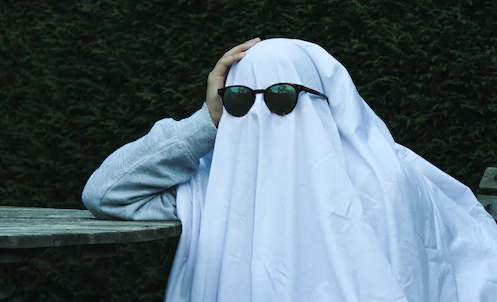Ghosting is the modern-day equivalent of shutting the door to your room with the intent of passively refusing to communicate any further. A cut-off from a person or a situation that is intentional and singularly unknown to the person that is being “ghosted”. You can feel the “ghosts” presence online, but you can never concretely get a hold of them.
It has become a common practice in the world to a point where ghosting has become the central plotline for major Hollywood movies and pop songs. Ghosting has always existed! Ask your grandparents how their pen pals would simply stop replying to their letters, not to forget how Rachel McAdams unintentionally ghosted Ryan Gosling in The Notebook, and he held on for a solid year! It is bleeding into our global culture now for multiple reasons. The convenience and ease of simply not replying can be so tempting that most people tend to choose that option over discomforting confrontations. Additionally, it may also be a sense of power and control that one may derive from choosing to withhold their replies- an abuse of power. From letting potential romantic candidates down without the “awkward” conversation to overwhelming and trigger-some conversations with your loved ones to vanishing mid-conversation when you’re too bored and cannot be bothered to end a conversation, to ignoring that one relative that sends you a personal “good morning” photo every. Single. Day. Simply put, it hurts when we are on the receiving end of these ghosts, especially since the ghosts may be clueless about why they’re being ghosted. It has become a socially acceptable form of passive aggression. Research indicates that people who suffer ghosting, especially in romantic settings, feel less satisfied with their life and experience more loneliness. Another research successfully compares ghosting to social exclusion, or ostracism. As social animals, acceptance and validation from our loved ones, friends and society in general is integral to our mental health. Reckless ghosting poses a danger to our social bonds where the Ghost avoids communication and the ghostee suffers a lot of distress.
So Ghosting is bad, right? Right? Well, if only it were that simple. Ghosting is a cut-off and ultimately so many things are cut-offs like running away from home, blocking people, removing people from our lives, etc. It is a tool. Imagine a hammer. It has multiple uses. We can build skyscrapers with it, take apart furniture only to repair and refurbish it, we can miss the head of the nail and fracture our hand, and it can also be used “creatively” during intense interrogations. Ghosting, another tool, comes with a lot of uses, and depending on the situation, it can protect, or it can injure. Sometimes we also have to lock our doors so that we may be safe from wild animals, thieves, and robbers! Imagine a situation where we have done our best to communicate but the person refuses to respect our boundaries or a toxic household where the parents use any opportunity they have to manipulate us, or that Goodmorning sending relative who has no idea about their audience.
Anything in excess becomes harmful, and such is also true with ghosting. Yet some situations call for ghosting to protect the sanctity of our mental peace. It is helpful to be mindful before ghosting someone and keeping your reasons in mind. Ghosting is a blameless tool. What matters is whether we wield it for defense, or for destruction. If you are a ghost, or a ghostee looking for support, please feel free to reach out to your friendly neighborhood paranormalist/psychotherapist!




